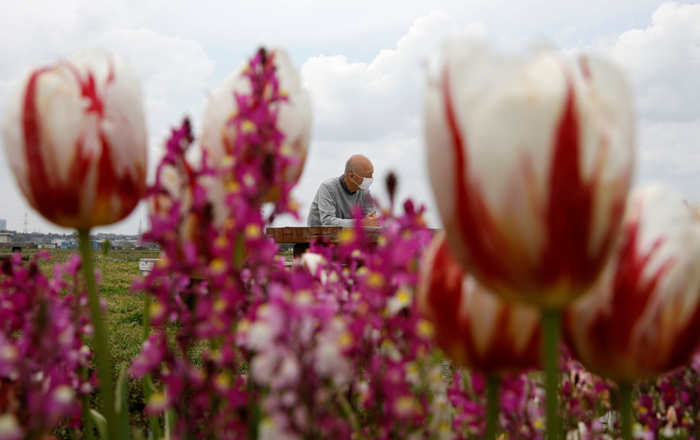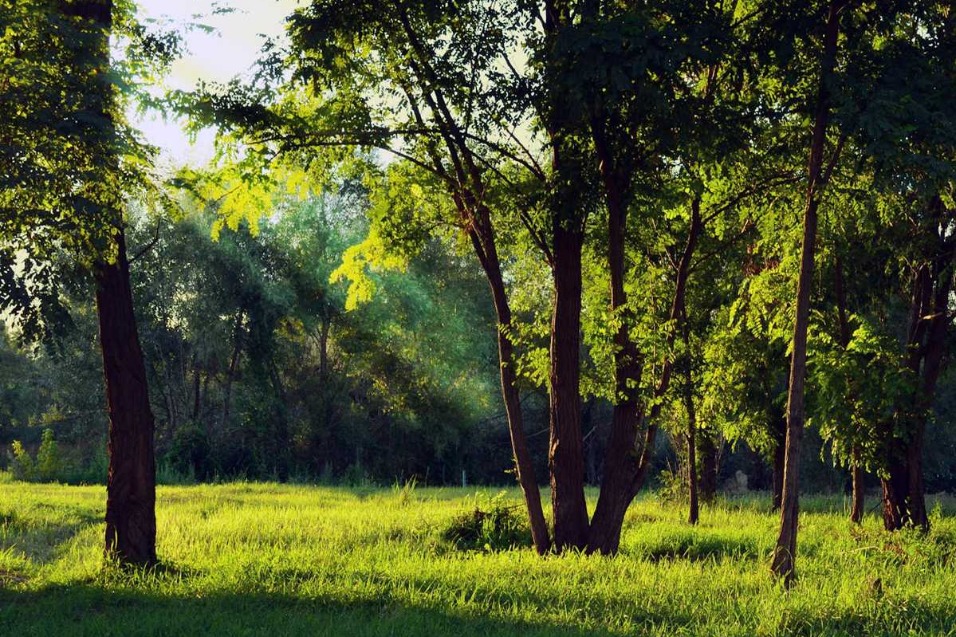為防止民眾聚集 日本城鎮(zhèn)忍痛剪光玫瑰和郁金香 Japan Covid-19 officials cut off thousands of roses to deter gatherings
中國(guó)日?qǐng)?bào)網(wǎng) 2020-04-26 08:05

賞花是春天的一大樂事,但是為了防止游客聚集傳播新冠病毒,日本埼玉縣官員無(wú)奈地做出了剪除所有玫瑰花苞的決定。此前,日本佐倉(cāng)市因?yàn)槿ス珗@觀賞郁金香的游客絡(luò)繹不絕,不得不把公園里的80萬(wàn)朵郁金香全部剪光。

Local authorities in Japan are sacrificing tens of thousands of flowers to deter visitors, as the country attempts to contain the coronavirus outbreak.
日本正在努力遏制新冠肺炎疫情,為了阻止游客,地方政府犧牲了數(shù)萬(wàn)株鮮花。
Tiptoeing through the tulips or breathing in the scent of roses are popular spring rites in Japan, but there is concern that flower festivals could become the source of new infection clusters.
在日本,踮著腳走過(guò)郁金香花田或呼吸玫瑰的芬芳是春季的熱門活動(dòng),但是有人擔(dān)心花卉節(jié)會(huì)成為新增聚集性感染病例的源頭。
This week workers began severing the buds of about 3,000 rose bushes at Yono park in Saitama, north of Tokyo, in an attempt to keep flower viewers away.
為了不讓賞花者前來(lái),本周,東京北部埼玉縣Yono公園的工作人員開始給約3000株玫瑰剪除花苞。
The local government had already cancelled the annual rose festival, but the park is still open to the public, prompting the decision to rid the venue of its main attraction – 180 varieties of rose bushes that reach their peak from around the middle of May.
當(dāng)?shù)卣呀?jīng)取消了一年一度的玫瑰節(jié),但是公園仍然向公眾開放,促使當(dāng)局做出去除主要景觀的決定——180種玫瑰植株將在五月中旬前后迎來(lái)盛開期。
“It’s very painful, but we decided to take action after looking at the situation in other cities,” a local official told the Mainichi newspaper, adding that it would take about a week to remove all the buds.
一名當(dāng)?shù)毓賳T告訴《每日新聞》說(shuō):“這很讓人心痛,但我們觀察了其他城市的局勢(shì)后決定采取這一行動(dòng)。”他補(bǔ)充道,剪除所有花苞大約需要一周的時(shí)間。
Japan reported more than 430 new coronavirus cases on Thursday, bringing the country’s total to more than 10,000, public broadcaster NHK quoted health ministry officials as saying. The virus has killed more than 300 people in Japan, with 29 deaths reported on Thursday.
大眾傳播機(jī)構(gòu)日本放送協(xié)會(huì)援引厚生勞動(dòng)省官員發(fā)布的數(shù)據(jù)稱,4月23日日本報(bào)告的新增新冠肺炎病例超430例,全國(guó)確診病例總數(shù)超過(guò)了1萬(wàn)。新冠病毒已經(jīng)導(dǎo)致日本300多人死亡,23日新增死亡29例。
Those figures do not include 712 infections and 13 deaths linked to the Diamond Princess cruise ship, which was quarantined in Yokohama in February.
這些數(shù)據(jù)不包括鉆石公主號(hào)郵輪有關(guān)的712例確診病例和13例死亡病例,鉆石公主號(hào)2月份曾在橫濱被隔離。
The prime minister, Shinzo Abe, declared a state of emergency on 7 April, encouraging people to avoid unnecessary outings and to observe social distancing. The governor of Tokyo, Yuriko Koike, on Thursday urged residents in the capital to shop for food less frequently to reduce the risk of spreading the virus at supermarkets and shopping arcades, many of which remain crowded.
4月7日,日本首相安倍晉三宣布全國(guó)進(jìn)入緊急狀態(tài),鼓勵(lì)人們避免不必要的外出,遵守社交隔離規(guī)定。4月23日,東京都執(zhí)事小池百合子敦促東京居民減少外出購(gòu)買食品的次數(shù),以降低在超市和商業(yè)街散播病毒的風(fēng)險(xiǎn),現(xiàn)在東京的許多購(gòu)物場(chǎng)所依然人滿為患。
arcade[ɑ?r?ke?d]: n. (購(gòu)物)拱廊;有拱廊的街道
Koike said the 12 days starting from Saturday – a period that includes the Golden Week public holidays – would be an opportunity for the city’s 13.4 million people to “stay home and save lives”.
小池百合子說(shuō),從4月25日開始的12天——包括黃金周公共節(jié)假日在內(nèi)——將是東京1340萬(wàn)人口“在家保命”的一個(gè)機(jī)會(huì)。
The move to prune the roses hasn’t gone down well with some residents. “The roses at their best are worth seeing every year,” a 76-year-old man who regularly visits the park, told the newspaper. “I think it’s a waste, but we have no choice.”
一些居民不能接受剪除玫瑰的舉動(dòng)。“玫瑰盛開的景色每年都值得一看,”一位經(jīng)常逛Yono公園的76歲男性告訴《每日新聞》說(shuō),“我覺得這是浪費(fèi),但我們沒有選擇。”

In Sakura, a town 50km east of Tokyo, officials razed more than 100,000 tulip stems and cancelled its annual festival after crowds defied social distancing guidelines during the coronavirus emergency.
在東京以東50千米處的佐倉(cāng)市,官員們剪掉了10萬(wàn)多株郁金香的花朵,并取消了一年一度的郁金香節(jié)。此前有許多人去觀賞郁金香,不把新冠疫情危機(jī)期間的社交隔離指導(dǎo)意見放在眼里。
“Many visitors came at the weekend when the flowers were in full bloom,” Sakiho Kusano, a local tourism official, told Reuters. “It became a mass gathering, so we had no choice but to make the decision to cut the flowers.”
當(dāng)?shù)芈糜喂賳T草野咲穗告訴路透社說(shuō):“郁金香盛開時(shí),周末有許多游客前來(lái)。這造成了人員大量聚集,所以我們別無(wú)選擇,只能決定剪掉郁金香。”
Flower lovers will have to wait until next year to see the pink and red tulips carpeting the 7,000-square-metre Sakura Furusato Hiroba venue.
花卉愛好者需要等到明年才能看到佐倉(cāng)市故里廣場(chǎng)7000平方米的花田里開滿粉色和紅色的郁金香。
“It’s, very, very unfortunate. My mood sank when I saw this,” park visitor Misako Yonekubo said.
公園游客米洼美佐子說(shuō):“這非常非常不幸。看到這個(gè)景象時(shí),我的心情變得很低落。”
The cut flowers have not gone to waste, however. Officials said they had been donated to local kindergartens.
不過(guò),剪下的鮮花也沒有浪費(fèi)掉。官員稱,鮮花被捐給了當(dāng)?shù)氐挠變簣@。
英文來(lái)源:衛(wèi)報(bào)
翻譯&編輯:丹妮

















 英語(yǔ)點(diǎn)津微信
英語(yǔ)點(diǎn)津微信 雙語(yǔ)小程序
雙語(yǔ)小程序